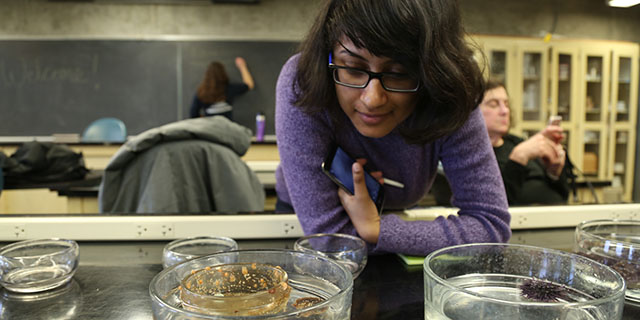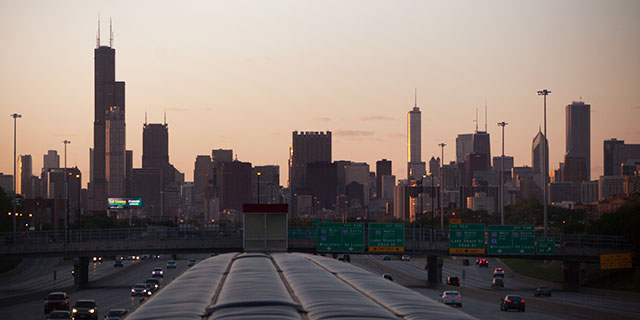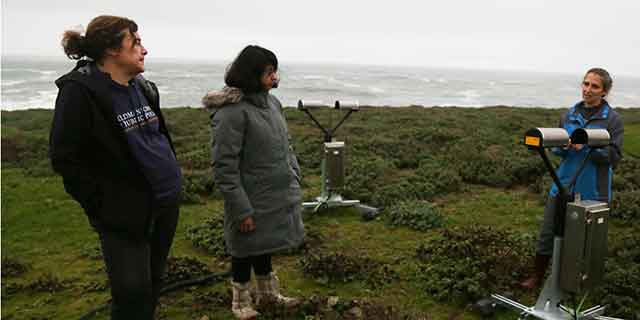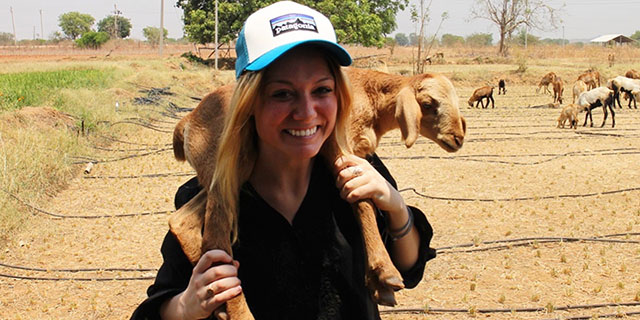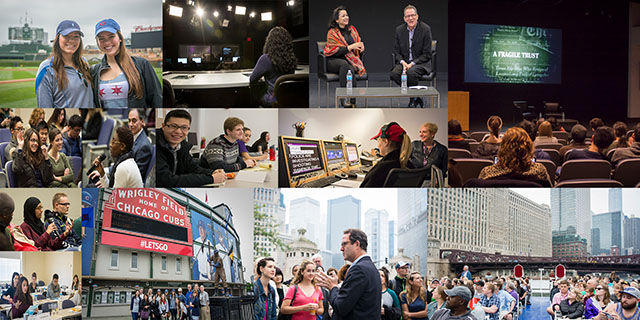
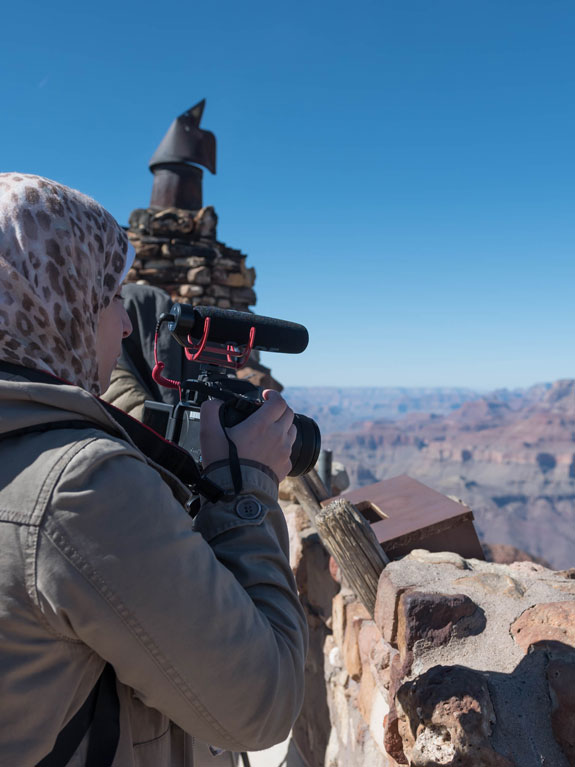
Health, Environment and Science Specialization
From the latest medical research to health care reform to climate change, the Health, Environment and Science specialization prepares future journalists to cover the hottest topics. Medill’s strong focus on reporting provides the tools you need to cover this fast-moving, complex and multi-faceted beat from the world-class city of Chicago with opportunities to pursue stories in the Andes Mountains, New Zealand and other environmental hot spots.
About the specialization
From breaking news on environmental crises and regulation to consumer reporting on medical advances and health care reform, the Health, Environment and Science specialization provides a solid foundation for journalists to understand how these issues touch so many areas.
Why Health, Environment and Science?
Career opportunities in health and science media are growing as readers and viewers seek information on medical advances, federal health care reform and environmental changes -- and how these issues affect their daily lives. The demand is high for journalists who can explain these complex topics in ways that are easy to understand.
What will I learn?
At Medill, you’ll learn from experienced faculty who’ve seen coverage in this specialization grow and evolve over the years. They’ll teach you to use the latest technology to report on breaking news, trends and features related to issues surrounding health, environment and science. You’ll analyze data, interview sources and uncover stories on your beat as you report for Medill News Service, where your stories will be picked up by partner organizations.
In addition to hands-on experience, you’ll have the chance to participate in onsite training, attend guest lectures by journalists and go behind the scenes at laboratories, hospitals and environmental research centers. You’ll graduate with an impressive portfolio and connections to Medill’s vast network.
Watch an overview of the Health, Environment, and Science specialization below:
Our Faculty
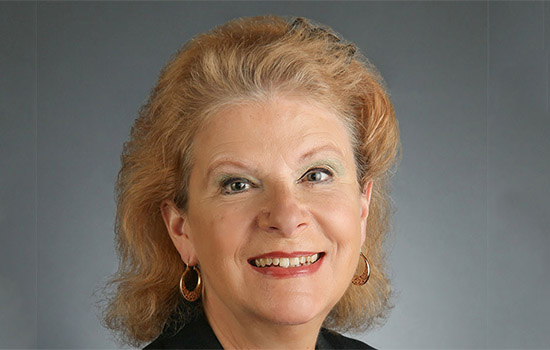
Abigail Foerstner
Foerstner’s 40-year career as a journalist began when she initiated science and environmental coverage as a staff reporter for regional sections of the Chicago Tribune.
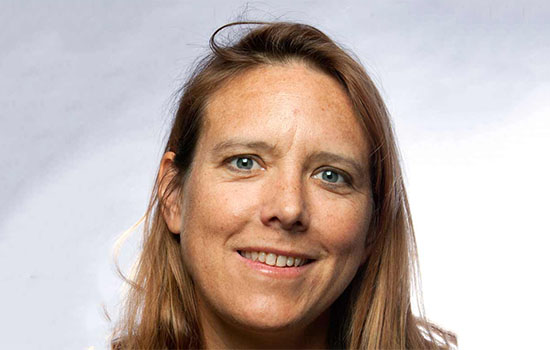
Kari Lydersen
Lydersen also works as a reporter, covering energy for Midwest Energy News and freelancing for other outlets including the Better Government Association, Discover Magazine, The Washington Post, People Magazine, The Chicago Reporter and In These Times.
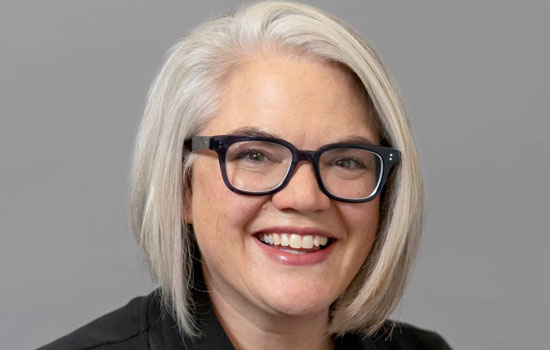
Patti Wolter
Wolter has deep experience in the magazine industry. She was the senior features editor at Self magazine, where she managed award-winning and investigative content on women’s health.
Our Alumni
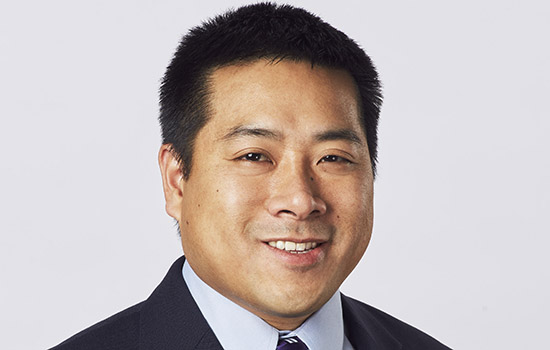
Herman Wang (MSJ03)
Managing Editor
Wang currently oversees Platts’ Middle East energy and OPEC news coverage. He previously covered U.S. oil and gas policy in Washington.
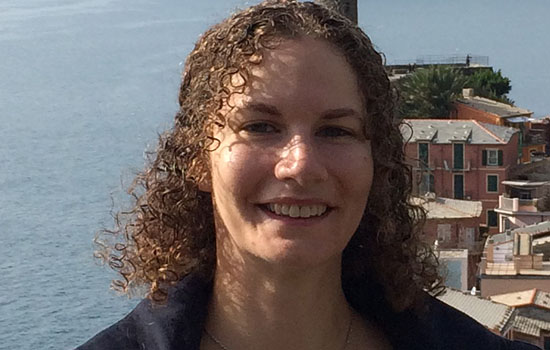
Kristen Minogue (MSJ10)
Science Writer
Minogue works alongside scientists and writes about their work for the Smithsonian Environmental Research Center, a coastal biology station on Chesapeake Bay operated by the Smithsonian Institution.
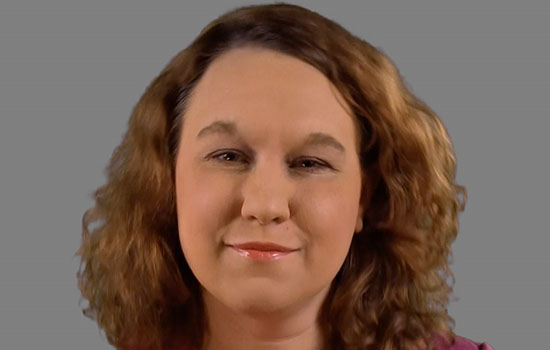
Natasha T. Metzler (MSJ04)
Associate Director of Digital Media and Content Strategy
From her institution's communications shop, Metzler helps about 400 Earth, space and life scientists share their work with the press and the public using social media, online articles and videos, and quarterly print publications.


